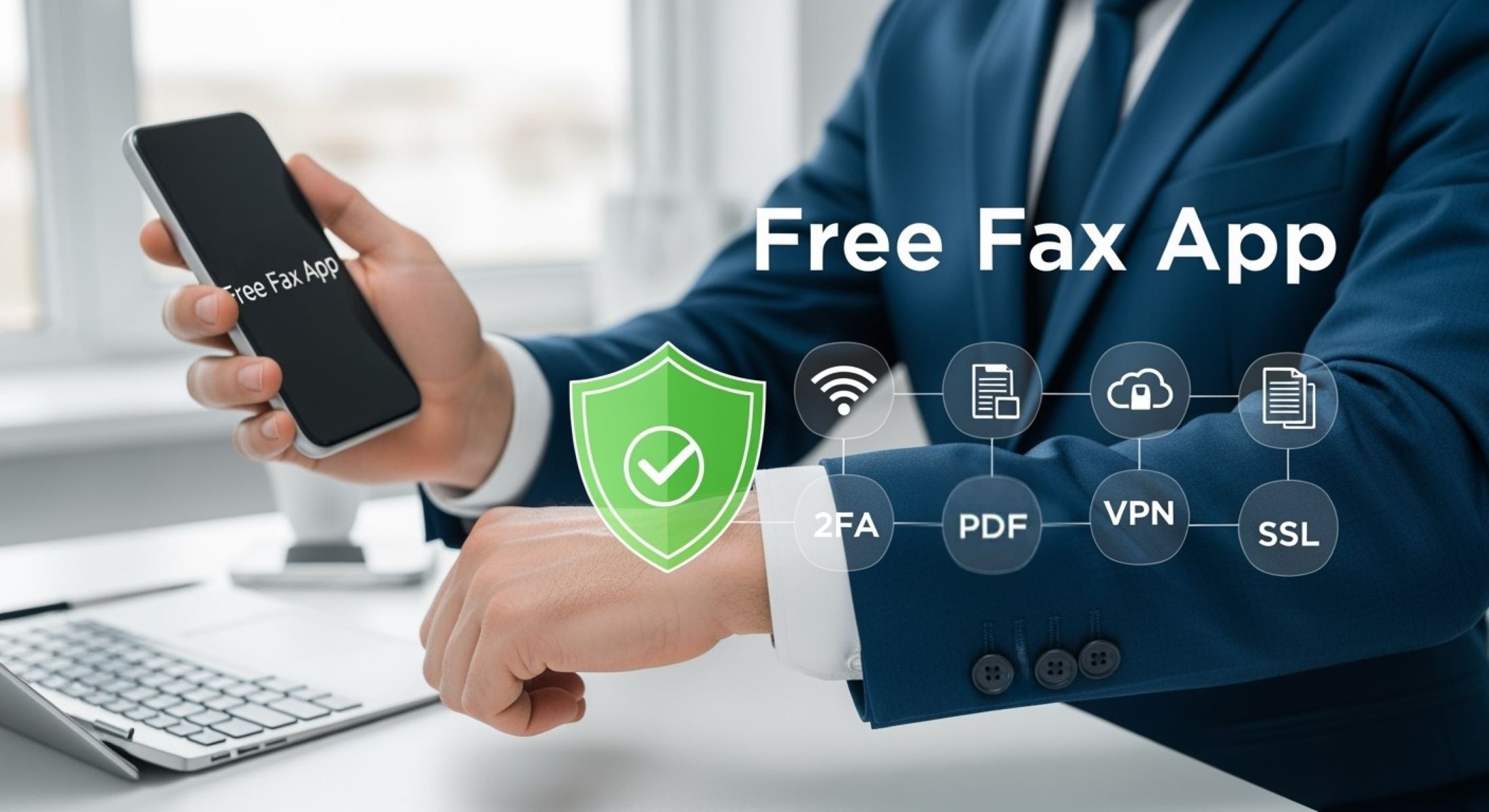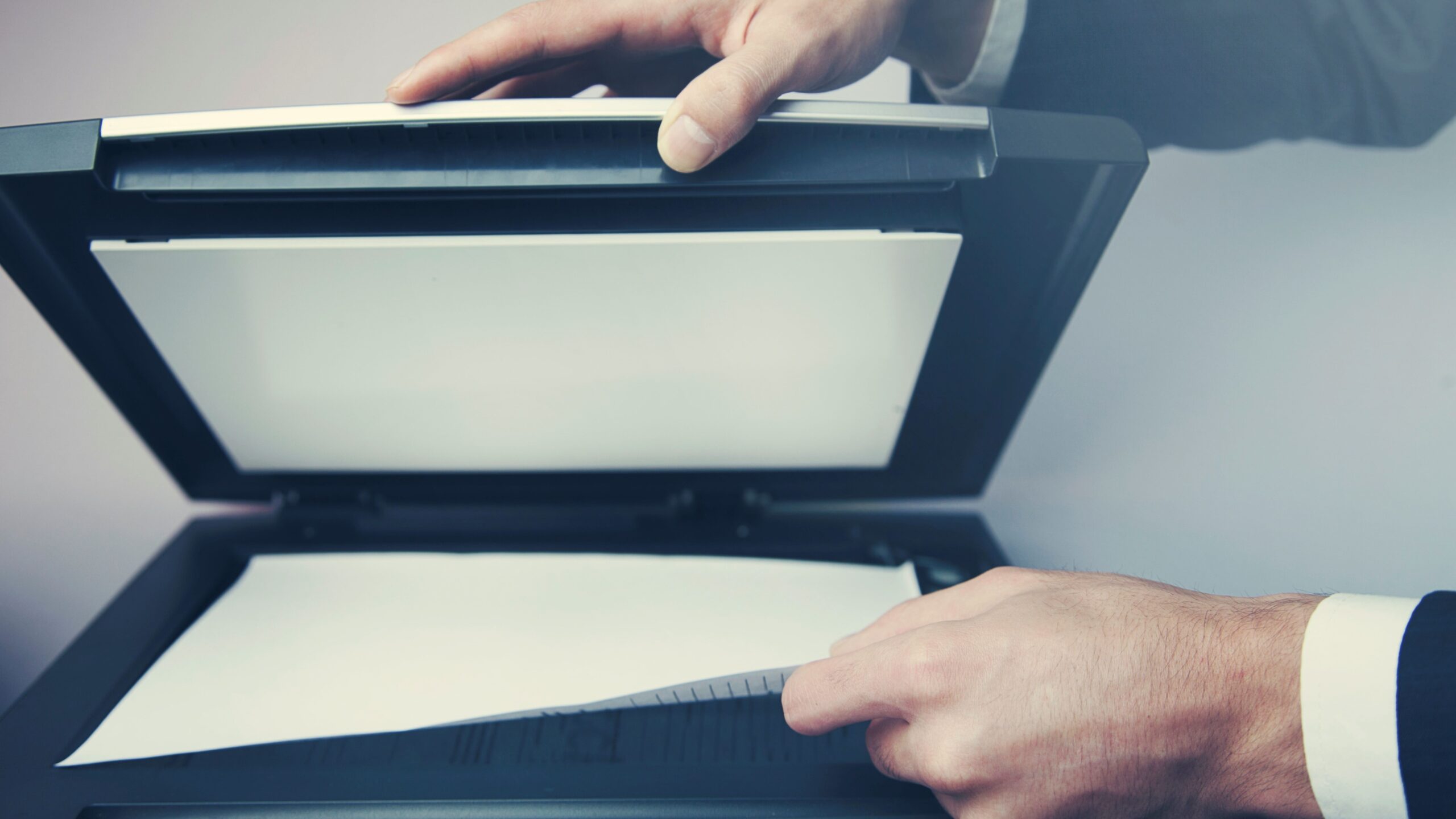Faxing might feel like a relic of the past, but trust me, it’s still alive and kicking in many workplaces. Especially with free fax app popping up everywhere, it’s super convenient to send documents without stepping near a bulky machine. But here’s the catch — convenience sometimes comes at a cost. And that cost? Your privacy. In this article, I’ll walk you through the top 5 privacy risks when using free fax app and how to steer clear of them. Whether you’re faxing sensitive contracts, medical records, or personal info, this guide will help you stay safe. Ready? Let’s dive in.
Understanding the Basics: How Do Free Fax Apps Work?
Before diving into the privacy risks of free fax apps, it’s important to first understand what these apps actually do and how they operate. At their core, free fax apps are designed to let you send and receive faxes using your smartphone, tablet, or computer without the need for a traditional fax machine or a dedicated phone line. This convenience has made them popular, especially for individuals and small businesses that want to avoid the hassle and expense of maintaining fax hardware. Essentially, these apps digitize the entire faxing process, making it accessible anytime and anywhere.
The way free fax apps work is by converting your digital files—whether they are PDFs, Word documents, or images—into the standard fax format. Once converted, the app sends your fax over the internet to the recipient’s fax machine or fax app. This transmission relies on internet protocols rather than traditional phone lines, which is why you don’t need any physical equipment beyond your device. The recipient receives the fax as they normally would, either on a fax machine or through their own fax application. This seamless process bridges the gap between old-school fax technology and modern digital convenience.
One of the key reasons these apps are “free” is that they offer basic faxing services at no charge to attract users. However, this freemium model often means that while you can send or receive a limited number of pages without paying, additional features come with a cost. For example, you might have to pay for sending more pages, removing ads, or getting faster delivery speeds. This structure allows the app developers to sustain their service while giving users an easy entry point to try the service without any upfront investment.
While all this sounds incredibly convenient, there’s a trade-off hidden beneath the surface. Free services often rely on collecting user data, showing ads, or sharing information with third parties to generate revenue. This means your personal information or even the content of your faxes could potentially be exposed or used in ways you might not expect. Understanding these basics helps set the stage for recognizing the privacy risks involved when using free fax apps and why it’s crucial to choose these tools wisely.
Data Interception – Your Documents Aren’t Always Safe
- When you send sensitive documents like confidential contracts, medical reports, or financial papers through free fax apps, there’s always a risk that unauthorized parties could access this information. This happens mainly because some apps fail to protect your data properly during transmission or storage.
- A major concern is the lack of encryption. Many free fax apps do not encrypt the files you send or receive, which means your documents travel over the internet as plain text or easily readable data. Without encryption, hackers who monitor network traffic—especially on unsecured or public Wi-Fi—can easily intercept and steal your private information.
- Another threat comes from man-in-the-middle attacks. If the app relies on outdated or weak security protocols, cybercriminals can insert themselves between you and the fax recipient. By doing this, they capture your data in real-time without either party knowing, compromising your sensitive content before it even reaches its destination.
- Storage practices also matter. Some free fax apps keep copies of your faxes on their servers without strong protections. If these servers get hacked or suffer data breaches, your documents could be leaked or sold on the dark web, putting your privacy and security at serious risk.
- To protect yourself, always verify if the fax app uses end-to-end encryption. This means your documents are encrypted from the moment you send them until the recipient receives and decrypts them, making it nearly impossible for outsiders to read the data in transit.
- Avoid using fax apps on public or unsecured Wi-Fi networks unless you connect through a trusted Virtual Private Network (VPN). A VPN creates a secure, encrypted tunnel for your data, preventing hackers on the same network from spying on your activities.
- Look for apps that implement SSL (Secure Sockets Layer) or TLS (Transport Layer Security) protocols. These are modern security standards that ensure data transferred between your device and the app’s servers is encrypted and protected against interception.
- Be cautious of apps that do not clearly state their security measures or privacy policies. Transparency is a good sign that the company values your data protection and has taken steps to guard against interception and unauthorized access.
- Lastly, consider limiting the amount of highly sensitive information you fax through free apps. When possible, use trusted, paid services that offer stronger security guarantees to ensure your documents remain private.
Data Storage – Where Does Your Fax Go?
| Risk Factor | What It Means for You | Potential Consequences | What to Look For in an App | Why It Matters |
| Permanent Storage | Your faxes may be saved indefinitely on the app’s servers | Sensitive data remains accessible long-term | Clear, short data retention policy | Minimizes risk of long-term data breaches |
| Cloud Storage Risks | Documents stored in the cloud without clear user consent | Loss of control over who accesses your files | Explicit consent and strong encryption | Ensures your files aren’t stored or shared unknowingly |
| Third-Party Access | Partners or advertisers might access your stored faxes | Data could be sold, leaked, or used for targeted ads | No third-party data sharing policy | Protects your privacy and limits data misuse |
| Lack of Transparency | No clear info on how long data is kept or who can see it | Users remain unaware of privacy risks | Transparent and detailed privacy policy | Builds trust and informs your choices |
| Weak Security on Servers | Stored faxes could be vulnerable to hacking or leaks | Personal or business data exposed publicly | Strong server security measures like encryption | Prevents unauthorized access and data theft |
Identity Theft and Fraud – Your Info Could Be at Risk
When you sign up for free fax apps, they often require you to provide personal information like your name, email address, phone number, and sometimes even more sensitive details. While this may seem normal, it opens the door to potential identity theft if the app isn’t trustworthy. Some less reputable fax services may collect your data under the pretense of providing faxing capabilities but then use or sell your personal information without your knowledge. This kind of data misuse can lead to serious problems, including unauthorized access to your financial accounts or even fraudulent activities carried out in your name.
Another major concern is phishing attacks linked to free fax apps. Scammers sometimes create fake or cloned versions of popular fax apps to trick users into handing over their login credentials or personal information. Once cybercriminals get hold of this data, they can impersonate you, steal your identity, and commit fraud. Because free fax apps are widely downloaded and often lightly regulated, they can be an attractive target for such schemes. It’s easy to fall victim if you don’t verify the authenticity of the app before downloading or sharing your details.
Security features like two-factor authentication (2FA) are critical but often missing in free fax apps. Without 2FA, a hacker only needs your username and password to break into your account. If your login credentials are leaked or guessed, your account can be hijacked, and your personal and faxed documents can be exposed or misused. Many free apps skimp on these extra layers of security, leaving users vulnerable to account takeovers and identity theft.
To protect yourself, always choose fax apps that offer strong authentication options like 2FA and use complex, unique passwords. Avoid recycling passwords you use on other sites. By being proactive about your security, you reduce the chances of falling prey to fraud and identity theft. Remember, the convenience of free fax apps is only worthwhile if your personal information stays safe.
Malware and Spyware Hidden in Attachments
- Fax apps, much like email, can be used to spread malware and spyware through malicious attachments. While you might think of faxes as simple documents, attackers sometimes embed harmful files in these attachments that can infect your device once opened.
- One of the biggest dangers comes from receiving faxes with attachments sent by unknown or untrusted sources. These files may look harmless but can contain viruses, ransomware, or spyware designed to steal your personal information or damage your system.
- Many free fax apps automatically download or save attachments without asking for your permission first. This convenience can backfire by increasing the risk of your device getting infected even before you get a chance to scan or reject the file.
- If your fax app opens attachments automatically, the malware can start running immediately after download, silently compromising your device’s security and privacy without your knowledge.
- Sometimes, malware hides in seemingly normal file types like PDFs, Word documents, or image files sent via fax. These files may contain malicious scripts or macros that execute harmful actions once opened.
- Using a reliable antivirus or anti-malware program on your smartphone or computer is crucial. Such software can detect and block harmful attachments before they cause damage.
- It’s equally important to only open attachments from known, trusted contacts or senders. If you receive a fax attachment from an unfamiliar source, be very cautious and verify its legitimacy before opening.
- Prefer fax apps that include built-in security features like automatic scanning of attachments for viruses or suspicious content. These apps act as an additional layer of protection, reducing the chance of infection.
- Regularly update your fax app and antivirus software to keep up with the latest security patches and virus definitions. Outdated software is more vulnerable to new types of malware threats.
- Lastly, educate yourself about common malware signs such as unexpected pop-ups, slow device performance, or suspicious file behavior after opening an attachment, so you can respond quickly and minimize damage.
In-App Advertisements and Data Monetization
| Monetization Method | What It Means for You | Potential Risks | What to Look For in an App | Why It Matters |
| Targeted Advertisements | Apps track your faxing behavior to serve personalized ads | Your data is continuously monitored and profiled | Apps that limit tracking or offer ad-free options | Protects your privacy and reduces intrusive ads |
| Data Selling | Your personal and fax data may be sold to third parties | Loss of control over your sensitive information | Apps with strict no data-selling policies | Prevents your data from being misused or exploited |
| Behavioral Tracking | Apps collect data on your app usage, contacts, and habits | Creates detailed profiles for marketing or worse | Apps with transparent data usage disclosures | Helps you understand how your data is used |
| Hidden Data Sharing | Some apps share your info with undisclosed partners | Increased risk of data breaches and misuse | Clear and detailed partner disclosure policies | Ensures you know who has access to your data |
| Ad-Driven Revenue Model | App’s main income comes from showing ads to users | App experience can be cluttered and distracting | Options to remove ads through subscription | Improves user experience while supporting app |
How to Choose a Secure Free Fax App: What to Look For
Choosing a secure free fax app can feel overwhelming, especially with all the risks involved, but it’s totally doable if you know what to look for. The first and most crucial feature is end-to-end encryption. This means your documents are scrambled and only the sender and recipient can read them — no one else, not even the app provider. Without this, your sensitive files could be intercepted or accessed by unauthorized parties during transmission or while stored on servers. So, always prioritize apps that offer strong encryption to keep your data truly private.
Next, pay close attention to the app’s privacy policy. A clear, transparent privacy policy tells you exactly how your data is collected, used, and shared. Many free apps hide in the fine print that they sell or share your information with advertisers or third parties. A trustworthy app will openly state what they do with your data and offer options to control your privacy. If you can’t find a straightforward privacy policy or it’s too vague, consider that a big red flag and look elsewhere.
Another key point is whether the app sells your data or not. Free apps need revenue, but the best ones don’t make money by selling your personal information. Instead, they might rely on ads or premium features to earn income. Choosing apps that explicitly promise no data selling helps keep your information safer and limits the chance that your fax contents or personal details end up in the hands of marketers or worse.
Finally, strong authentication features like two-factor authentication (2FA) are a must-have to protect your account from hackers. This adds an extra layer of security beyond just a password, making it harder for cybercriminals to break in. Also, apps with minimal or no ads generally track you less and provide a better user experience without constant interruptions. Don’t forget to check user reviews and ratings too — real feedback from other users often reveals if an app is trustworthy or has hidden problems. Taken together, these factors can help you pick a free fax app that balances convenience with real security.




